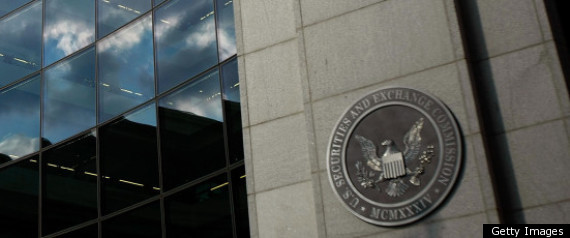 Memo to hedge fund managers: It's a bad time to try to overachieve. The Securities and Exchange Commission is cracking down on hedge fund fraud, and the first places they're looking are the firms that seem to be doing a little too well.
Memo to hedge fund managers: It's a bad time to try to overachieve. The Securities and Exchange Commission is cracking down on hedge fund fraud, and the first places they're looking are the firms that seem to be doing a little too well.According to a report in The Wall Street Journal, the SEC has devised a method of sorting data that highlights hedge funds whose balance sheets never seem to suffer, no matter how rocky the market gets. The WSJ notes that the agency is trying to spot the next Bernie Madoff before he or she can defraud investors of billions of dollars, the way Madoff did with his Ponzi scheme. Already, the WSJ says, the SEC has initiated four civil-fraud lawsuits based on their data review system.
It's an auspicious time for the SEC to be seen bringing the hammer down on Wall Street scofflaws, because many have criticized the agency since the height of the financial crisis for not doing more to identify and prosecute financial malpractice.
In one such high-profile instance, Harry Markopolos, the fraud investigator who spent almost a decade building a case against Madoff's wealth management firm, told the House Financial Services Committee in 2009 that the SEC was "financially illiterate" and "captive to the industry it regulates."
The SEC has also taken heat for its failure to place a check on Lehman Brothers' heavy over-leveraging in the months before its collapse, and for waiting until 2005 to investigate the business practices of Texas billionaire Alan Stanford, even though the agency had begun to suspect the truth -- that Stanford was operating a sizable Ponzi scheme -- as early as 1997.
More recently, a report issued in November from the SEC's Office of Inspector General noted that the SEC had failed to investigate a tip about another unnamed hedge fund manager allegedly perpetrating "massive fraud."
Perhaps in response to these and other criticisms, late 2011 has been a proactive period for the SEC. The agency recently touted its redoubled efforts to stamp out insider trading, and earlier this month, it sued six former executives of Fannie Mae and Freddie Mac for securities fraud, claiming that the executives misrepresented the degree of their companies' exposure to risky subprime loans during the period preceding the financial crisis.
Original Article
Source: Huff
No comments:
Post a Comment